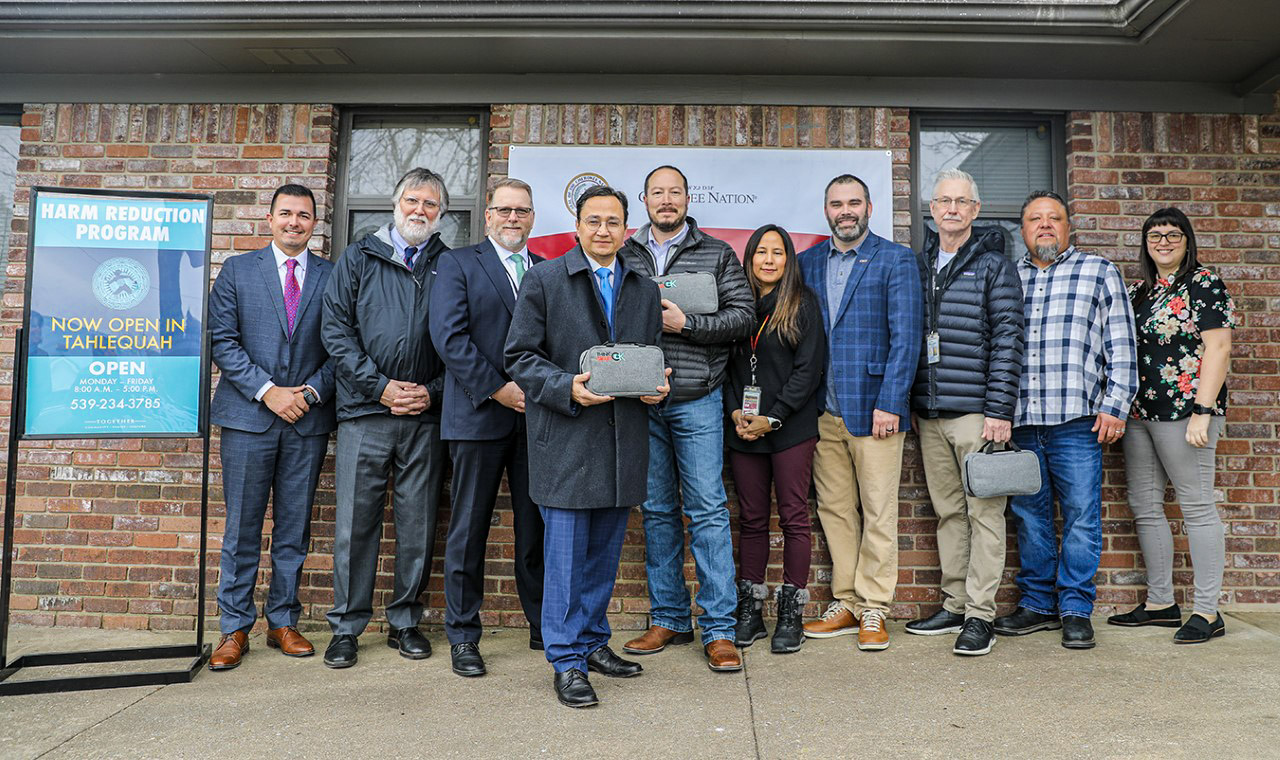Indianz.Com > News > Chuck Hoskin: Cherokee Nation continues to fight the opioid crisis

We must preserve telemedicine options to fight the opioid crisis
Monday, April 17, 2023
Cherokee Nation
One of my most urgent priorities as Chief of the Cherokee Nation has been combatting the opioid epidemic.
The opioid industry flooded Cherokee communities with these dangerous drugs. Overdose deaths more than doubled among Cherokee citizens between 2003 and 2014, and the fallout strained many of our tribal services, including clinics and emergency rooms, law enforcement and child welfare.
In 2017, we were the first tribe in the nation to file a lawsuit against the opioid industry, and our $100 million settlement from that lawsuit is now being invested in addiction care. The goal for these funds is to make treatment easily accessible, without judgment or unnecessary barriers, for every Cherokee who needs it.
That’s why I was disturbed to see a new proposed federal regulation that would increase barriers for some of our most vulnerable patients. The proposal by the Drug Enforcement Administration would prevent telemedicine doctors from prescribing controlled substances such as buprenorphine, a lifesaving medication for those struggling with opioid addiction. Without an in-person appointment, the proposed rule limits prescriptions of buprenorphine to a single 30-day supply. This change poses a severe risk to our citizens, especially those living in rural areas with limited access to transportation and resources.
Chuck Hoskin Jr.
is the 18th elected Principal Chief of the Cherokee Nation, the largest Indian
tribe in the United States. He is only the second elected Principal Chief of the
Cherokee Nation from Vinita, the first being Thomas Buffington, who served from
1899-1903. Prior to being elected Principal Chief, Hoskin served as the tribe’s
Secretary of State. He also formerly served as a member of the Council of the
Cherokee Nation, representing District 11 for six years.
Related Stories
Cherokee Nation seeks to hold drug companies accountable for opioid epidemic (December 18, 2017) Cherokee Nation ready to move forward with opioid lawsuit in tribal court system (August 10, 2017)
Bill John Baker: Cherokee Nation battles opioid epidemic among our people (August 2, 2017)
Cherokee Nation details devastating impacts of opioid crisis in Oklahoma (July 25, 2017)
Cherokee Nation blames pharmaceutical industry for opioid crisis (April 20, 2017)
Search
Filed Under
Tags
More Headlines
Native America Calling: How Native literature is changing the mainstream narrative
Native America Calling: No ordinary animal
Native America Calling: Safeguards on Artificial Intelligence
NAFOA: 5 Things You Need to Know this Week
Chuck Hoskin: Cherokee Nation takes the lead for our environment
Native America Calling: Earth Day assessment for Native peoples
Cronkite News: Gathering addresses ‘epidemic’ among Native people
VIDEO: Cody Desautel on tribes and federal forest management
AUDIO: Legislative Hearing on Discussion Draft of Forest Management Bill
Native America Calling: Remembering the 1974 Navajo border town murders
Native America Calling: Can the right approach close the Native immunization gap?
Cronkite News: Long COVID cases remain high in Arizona
Native America Calling: Eyes in the sky for development, public safety, and recreation
Native America Calling: Three new films offer diverse views of Native life
NAFOA: 5 Things You Need to Know this Week
More Headlines
Native America Calling: No ordinary animal
Native America Calling: Safeguards on Artificial Intelligence
NAFOA: 5 Things You Need to Know this Week
Chuck Hoskin: Cherokee Nation takes the lead for our environment
Native America Calling: Earth Day assessment for Native peoples
Cronkite News: Gathering addresses ‘epidemic’ among Native people
VIDEO: Cody Desautel on tribes and federal forest management
AUDIO: Legislative Hearing on Discussion Draft of Forest Management Bill
Native America Calling: Remembering the 1974 Navajo border town murders
Native America Calling: Can the right approach close the Native immunization gap?
Cronkite News: Long COVID cases remain high in Arizona
Native America Calling: Eyes in the sky for development, public safety, and recreation
Native America Calling: Three new films offer diverse views of Native life
NAFOA: 5 Things You Need to Know this Week
More Headlines
